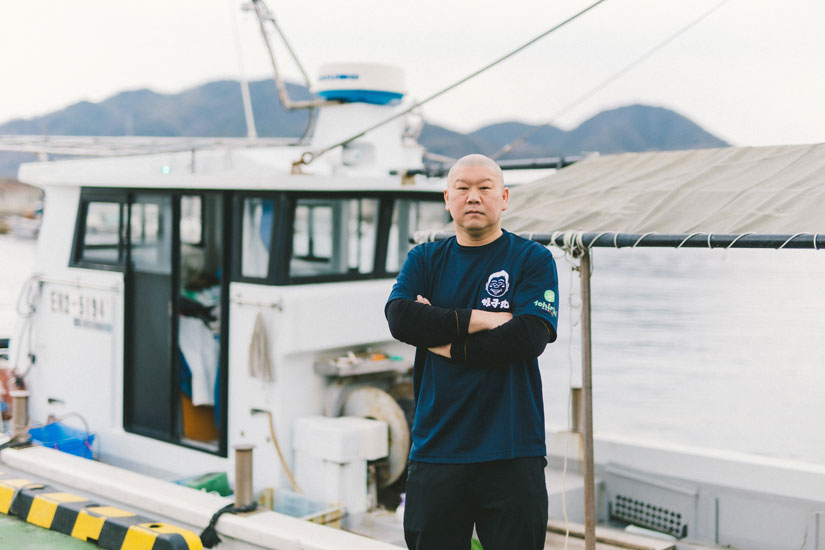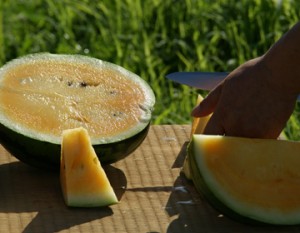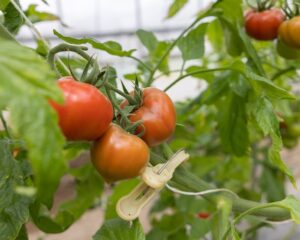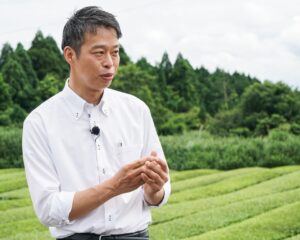Ehime Prefecture, Imabari City, Oshima. Miyakubo Fishing Port and the surrounding area are a fishing village rich in seafood, nurtured by the strong currents of the Kurushima Strait. Fujimoto Junichi, who has been working as a fisherman in this region since the age of 18, is already known as a “legendary fisherman” at a young age. Why are Fujimoto’s fish trusted and sought after by top chefs in Japan and around the world?
Delivering fresh fish “made to order.”
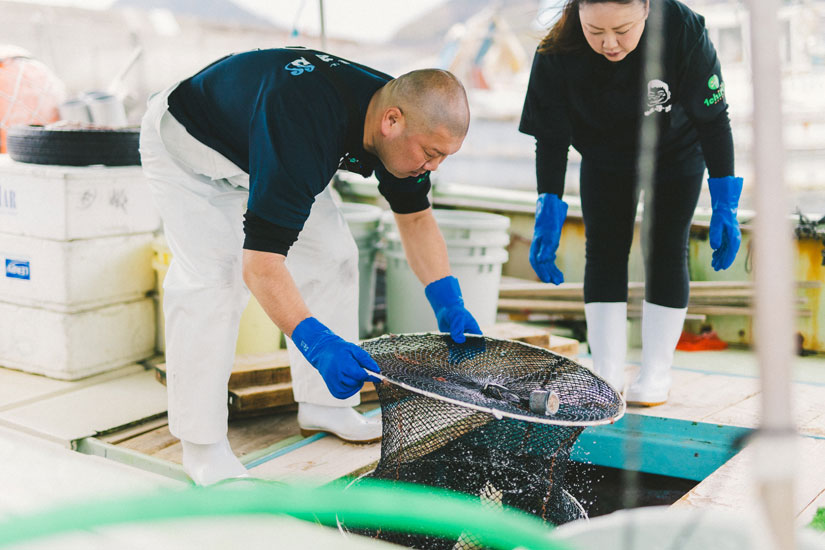
Top chefs who handle Fujimoto’s fish say, “Fujimoto’s fish is different from others.” Even if the fish come from the same region or are the same individual, why do differences in taste, freshness, and flesh quality arise depending on who catches them? Globally, Japan’s market freshness management is among the best. However, fish that have been processed with such care as to consider the stress imposed on them and undergo nerve-pinching treatment are likely few and far between in the market.Mr. Fujimoto strives to deliver fish that are already at 100% perfection at the time of catch, fine-tuning their freshness and flesh quality to achieve a state as close to 100% as possible before delivering them to each chef. This is the secret behind the quality that clearly sets him apart from others.
Handling fish without causing stress and processing them appropriately
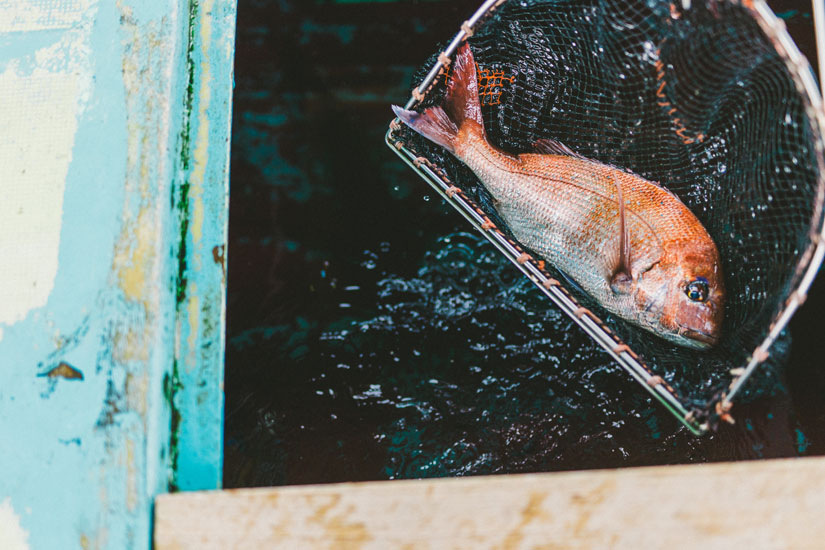
Fish that were actively thrashing around before processing, often described as “agitated,” are generally believed to accumulate lactic acid in their muscles, leading to poor blood circulation due to internal bleeding, which can result in a sour or fishy odor. However, by allowing the fish to rest without stress and processing them using Mr. Fujimoto’s appropriate method, the lactic acid and blood components in the muscles are broken down gently, bringing out the fish’s natural sweetness and deep umami flavor.
Mr. Fujimoto cites “time until rigor mortis sets in” as an indicator of freshness. While most fish begin rigor mortis 3–5 hours after death, fish processed using Mr. Fujimoto’s method maintain a “fresh state” for nearly 30 hours. This difference stems from his meticulous technique and experience in minimizing stress on the fish and processing them at the optimal timing.
Pioneer of “nerve-pinching”
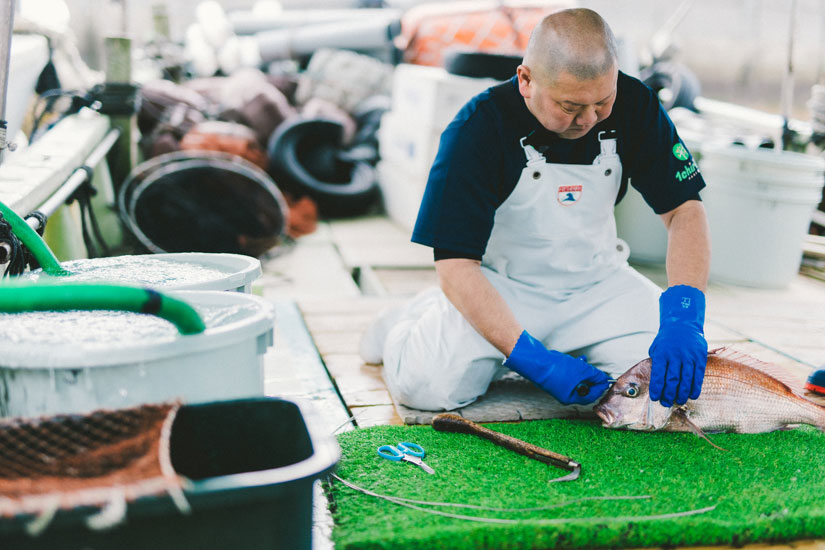
Fujimoto’s signature technique is known as “nerve pinning.” After allowing the fish to rest in a live tank for over 24 hours, he quietly scoops them up without chasing them, delivers a single blow to the head to crush the brain and stop movement, then inserts a wire near the spinal cord to prevent signals from reaching the muscles, thereby delaying rigor mortis and decomposition.The optimal method of killing and the position of the brain to crush vary depending on the fish, but Fujimoto has mastered all of these techniques, demonstrating his craftsmanship by ensuring that the fish do not struggle at all during the process.
He also bleeds the fish at the same time. “Blood is flavor, so it is best to remove 20% and leave 80% remaining. If too much is removed, the flavor is lost, and if too little is removed, a raw smell remains.”He is also highly skilled in aging processes, having started working on aged fish years before others began. In fact, the mackerel he processes can maintain its freshness for up to 80 days.
The value of fish shared between a fisherman, a fishmonger, and a top chef.
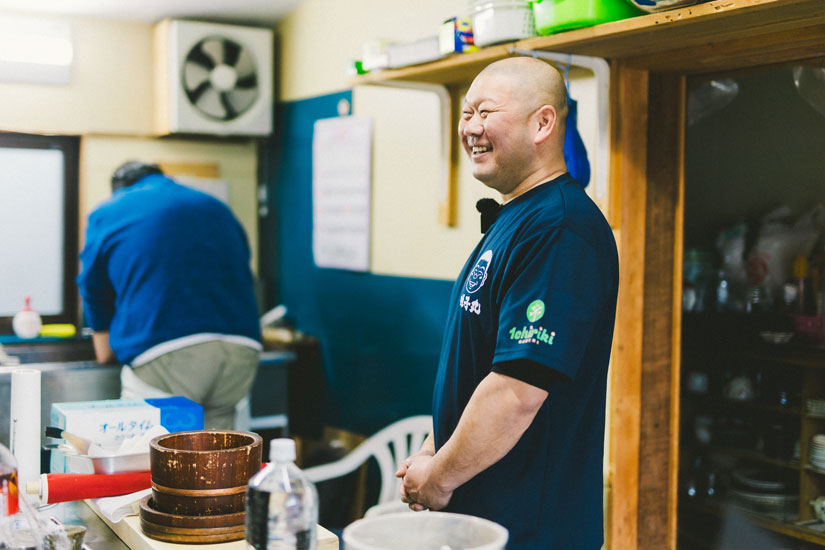
The fourth generation of a fishing family. From a young age, he rode his grandfather’s boat and selected his favorite fish from the day’s catch. He was raised with this discerning eye for fish. Even after becoming a fisherman, he relentlessly repeated experiments on his own, from catching fish, selecting them, gutting them, to eating them, all in pursuit of fish that he himself found delicious.By the age of 26, he was shipping fish that had undergone nerve-pinning to the Toyosu Market, but the technique itself was not widely recognized, so it did not lead to high market evaluations.
The turning point came at age 28. When he directly delivered fish to a chef in Osaka, the freshness and flavor were highly praised, and he received an offer to sell directly. This led him to establish the policy of “competing in a market where the quantity doesn’t matter, and buyers purchase fish at his own price,” and he expanded his sales network solely through word-of-mouth among chefs, without engaging in sales activities.Today, Fujimoto’s fish is served at approximately 300 top restaurants nationwide. In 2021, he won the Terroir Award in the restaurant guide “Gault & Millau 2021.”
Fishermen delivering directly to chefs
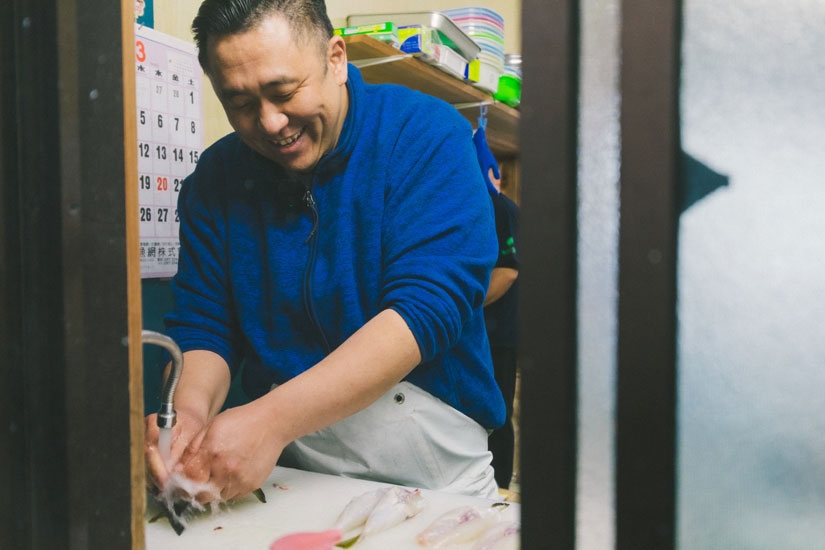
Located in Imabari City, on the Shimanami Kaido, is the Michelin one-star sushi restaurant “Akahachi.”Head chefs Akase Junji and Fujimoto respect each other’s skills and knowledge in handling fish, and continue to collaborate in promoting the region’s seafood. Akase praises Fujimoto’s fish, saying, “Even if it’s the same fish from the same tank, I can tell the difference when Fujimoto catches and prepares it. The flavor is as clear and pure as a sunny day.” In response, Fujimoto laughs, “Only a few people can tell the difference.”
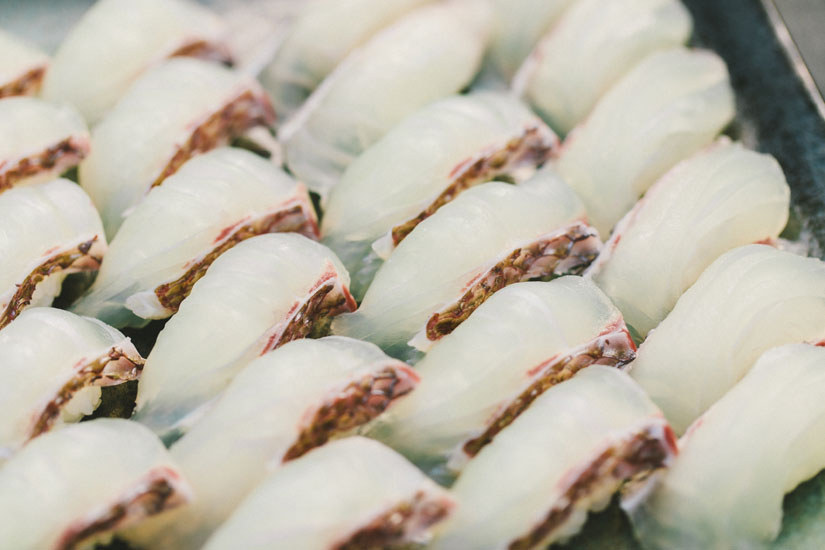
To convey the value of fish that has been carefully selected, it is not enough to simply say that it is “top quality.” It is essential to let customers taste the fish before purchasing it so that they can experience its true flavor. Only then can the real transaction begin. Mr. Fujimoto visits the stores that sell fish wholesale, listens to the chefs’ preferences, and adjusts the fish to meet their specifications. This meticulous matching, which is unique to fishermen and cannot be done in the market distribution system, is his strength.
A high-end dining experience with the highest level of freshness
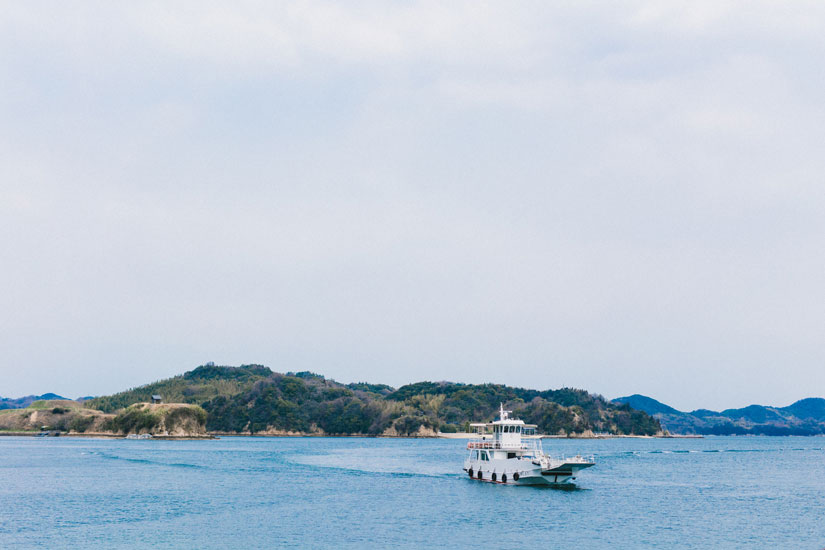
No matter how much emphasis is placed on freshness, there are inherent limitations in distribution. Fujimoto and Akase teamed up to launch “Nijikichi,” a pop-up restaurant that fully rents out “Akakichi.” They invite guests to the production area of Imabari and Shimanami, where they serve freshly caught seasonal fish prepared in the highest quality. The cooking is handled by top chefs from various genres across the country who have been captivated by Fujimoto’s fish.By maximizing the unique qualities of local ingredients, they are pioneering a new culinary experience called “local seafood gastronomy.” Furthermore, ‘Nijikichi’ is evolving to the next stage, set to open as “Auberge Fujimoto” in 2026, offering a high-end dining experience. The “living flavor” of freshly caught fish holds an irreplaceable charm.
Aiming for the world, preserving culture as a legacy.
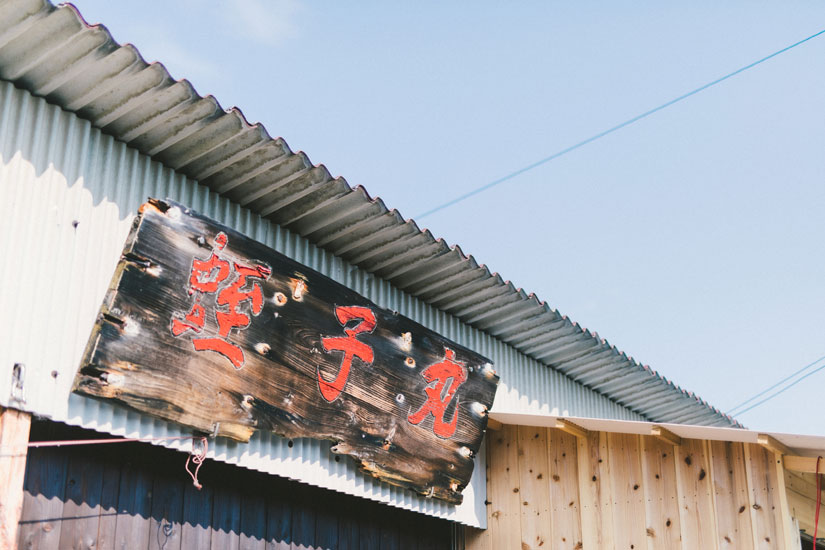
Mr. Fujimoto, recognizing the limitations of his fishing volume and number of business partners when working alone, has begun developing a system that can be expanded with the local community. He aims to pass on his knowledge and skills in fishing and maintaining fish quality to local fishermen, ultimately becoming unnecessary in Ehime, with his sights already set on the global market.
Fish distributed worldwide are not always delivered in the best condition compared to the Japanese market, which is renowned for its high quality. Fujimoto has actually boarded overseas fishing vessels to directly teach the technique of properly handling fish in the best condition, envisioning a future where that fish is transformed into the finest dishes by top chefs in their respective regions.
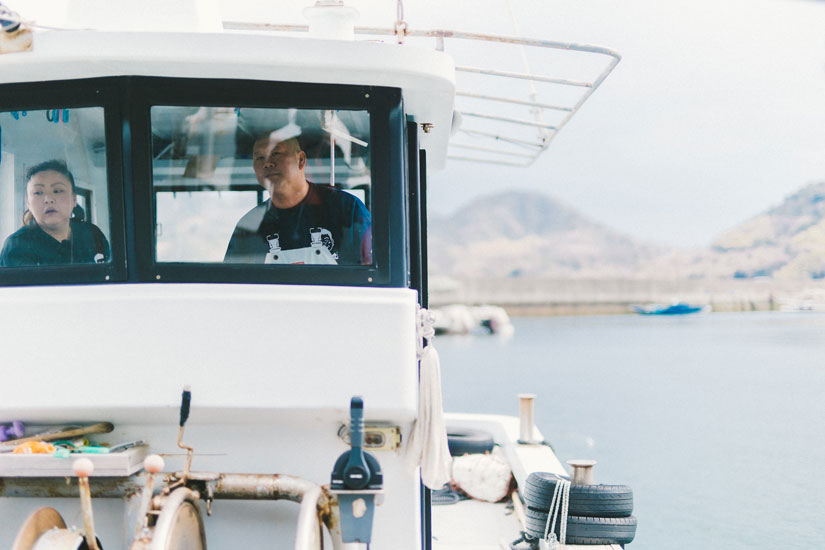
The goal is to spread the refined culture of “slaughtering fish” as Japan Quality to the world. To achieve this, it is essential to establish it as a culture rather than a one-off initiative. By enhancing the value of fish produced by fishermen, properly evaluating it, and establishing a system to support its purchase, sustainable cultural preservation becomes possible.
Mr. Fujimoto’s ultimate goal is “to eat the world’s best fish.” This stems from his lifelong curiosity as a fisherman, continuing his experiments in fishing. He says that if he can achieve this goal and confirm that the fish he has caught is the best in the world, he will have no regrets. With a global perspective, Mr. Fujimoto’s challenges in the world of gastronomy will continue to grow in influence.



